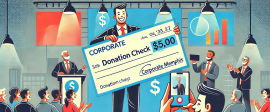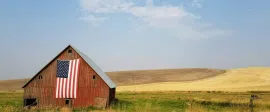- August 12, 2020
- Written by cheni vega
2020 giveth, and 2020 taketh away. When we were pining for sports following the initial wave of COVID-related cancellations, The Last Dance came along. More waiting and uncertainty followed. But with baseball underway despite some early hiccups, NASCAR, soccer, and golf going strong, and an out-of-the-usual-season NBA tournament on top of all that, we were blessed with more to watch than usual for the high summer.
And then college football was cancelled. Kind of. Half of it, anyway. We’re not totally sure about the other half.
The upheaval COVID’s brought to the sports world would be enough for any year – but even without it this year has been one to remember, thanks to the renewed focus on racial and cultural matters that followed the murder of George Floyd. The changes brought by the Black Lives Matter movement have shown up most dramatically in two places: the use of the national anthem as a stage for protest, and the long-running debate over the names, logos, and other symbols used by both teams and fans.
When Colin Kaepernick first took a knee during pre-game anthems in 2018 to protest police brutality against African-Americans the move sparked an uproar, with both teams and fandoms sharply divided over the action. That division persisted through sports seasons in 2019, but this year it’s all but ended. There have been fewer and fewer threats to boycott either sports or teams whose players take a knee, and earlier this summer no less a figure than Drew Brees was forced to backtrack after a comparatively mild statement in which he explained his position against doing so.
How did this consensus form so rapidly, given the continued public divide over the protests themselves? Two factors seem responsible. First, whatever the public perception of protestors’ clashes with police, there is widespread support for their objectives – nearly 70% of Americans agree that the criminal justice system is biased against black people and other culturally diverse groups. Second, that support is massively amplified within the leagues themselves. With the exception of the NHL, America’s professional team sports are far more diverse than the country as a whole, and despite their wealth and status most black players and coaches have experienced harrowing interactions with law enforcement first-hand – unlike many social causes, this isn’t one that affects “other people”. It is very real and very tangible.
Perhaps more remarkably, BLM has also helped bring one of the most stubborn controversies in sports to an end: the organization formerly known as the Washington Redskins has retired that name, adopting the straightforward moniker of “Washington Football Team” moving forward. Washington is only one of several teams with names that reference American Indians in some way; the NFL also has the Chiefs, MLB has the Braves and Indians, the NHL has the Blackhawks, and despite NCAA efforts to force changes Florida State are still the Seminoles.
The last two examples show a possible distinction between homage and appropriation. Rather than catch-all terms – or worse, outright ethnic slurs like “Redskin” – the teams’ names are specific to a tribe or individual. Indeed the Seminole tribe itself consulted with FSU when they redesigned the football team’s uniforms in 2014, and its leaders approve the regalia worn by Osceola (the student who plants the flaming spear at midfield before kickoff). The Blackhawks don’t operate quite as closely with local tribes as the Seminoles, and their logo has caused some debate, but they have nonetheless received acclaim for their contributions to the American Indian Center of Chicago.
Are there implications for marketers in all of this? You bet there are. One should be fairly obvious: if a particular culture is the core of your brand, it’s vital to make it as authentic (and non-appropriative) as possible, particularly if you and the other stakeholders aren’t of that culture yourselves. Next, in a polarized time neutrality on hot-button issues may not be an option, so keep a close eye on the opinions of your core consumers and be ready to adjust course rapidly. Finally, spend at least a bit of time planning for unlikely-but-possible events – the “black swans” that so often reshape history. It never pays to be blindsided.











